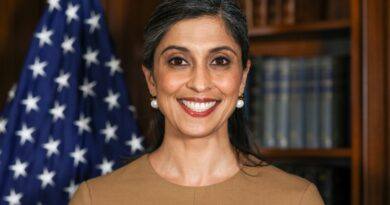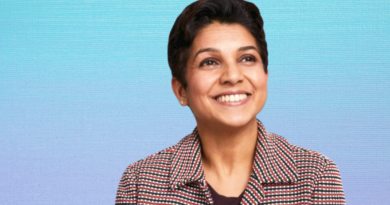Ratan Tata: No Jewel To Be Better Than This One
Ratan Naval Tata, popularly known as Ratan Tata, was someone we all looked up to with awe. His humbleness and yet outstanding leadership abilities surprise us. I feel the most important thing about him was his ability to connect with people of all age groups, especially youth. He had a childlike curiosity, which made him learn and update himself throughout his life. He made friends with young people and was open to learning new things from them. This achievement is truly remarkable.
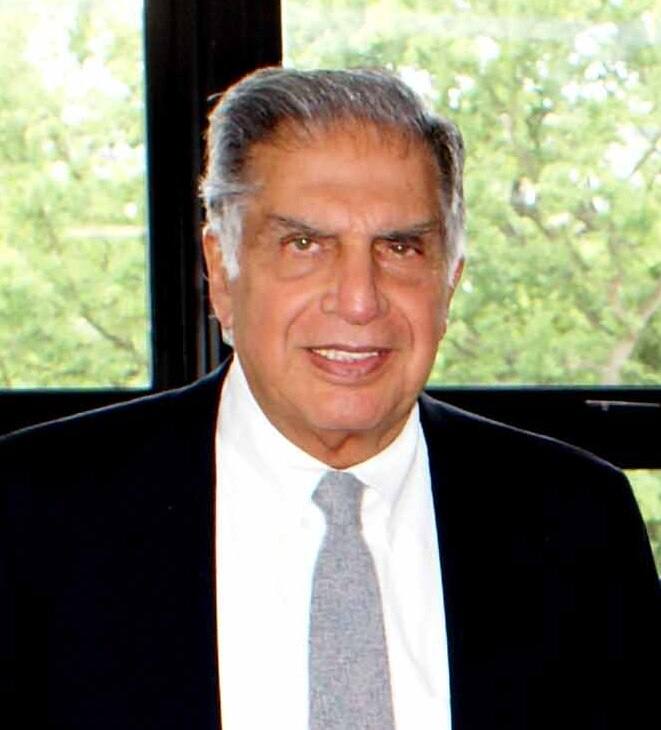
Ratan Tata is a renowned business leader and philanthropist. He has contributed significantly to the success story of the Tata Group. Tata Group, founded in 1868, operates in various sectors such as automotive, steel, information technology, and telecommunications. Mr. Ratan Tata was the chairman of Tata Group from 1990 to 2012 and interim chairman from October 2016 to February 2017. His visionary skills have inspired generations across the world.
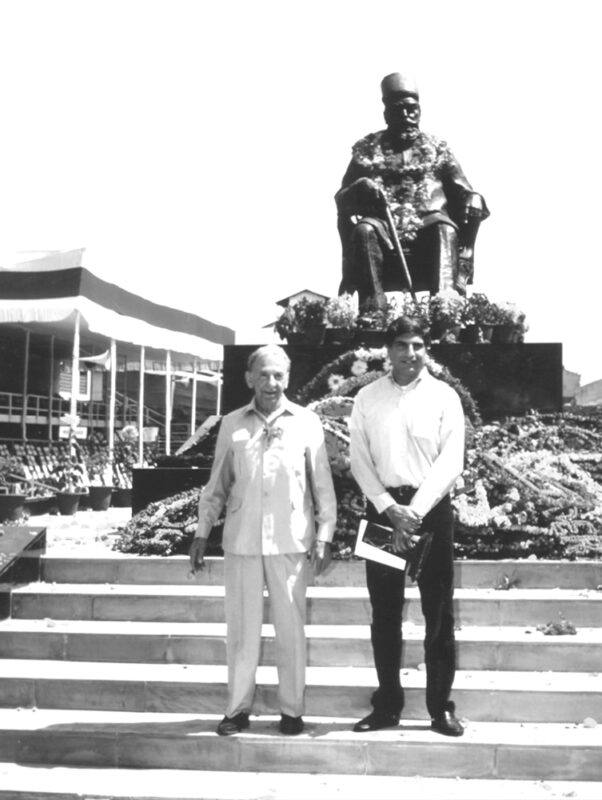
Mr. Ratan Tata was born in Mumbai to a Parsi Zoroastrian family and later adopted into the Tata business family. Ratan Tata studied at several schools, including Campion School, Cathedral and John Connon School, Bishop Cotton School, and Riverdale Country School in New York City. He graduated from Cornell University College of Architecture with a bachelor’s degree in architecture. He joined Tata in 1961 and worked on the shop floor of Tata Steel. He later succeeded as chairman of Tata Sons in 1991.
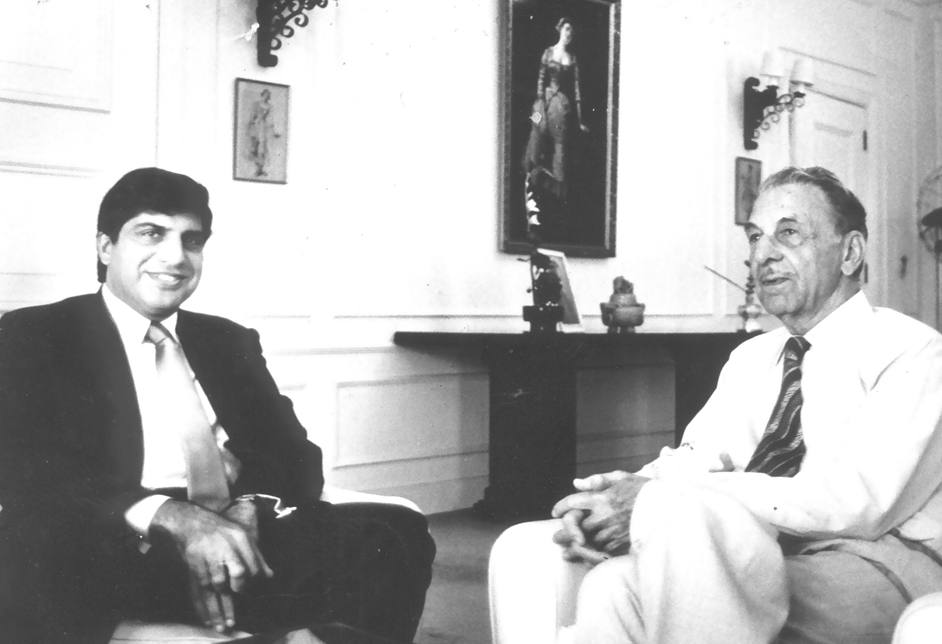
In 1970, Tata was given a managerial position in the Tata Group, which saw revenue grow over 40 times and profit over 50 times during 21 years. The majority of sales came from brands.
The journey to Tata Group began when Mr. JRD Tata, Chairman of Tata Sons, stepped down in 1991. Many were surprised by this news, as they expected existing executives such as Russi Mody (Tata Steel), Darbari Seth (Tata Tea, Tata Chemicals), Ajit Kerkar (Taj Hotels), and Nani Palkhivala (Director on boards of several Tata Companies) to succeed JRD Tata. The choice of Ratan Tata as the successor sparked a bitter feud among the group, with many disagreeing with the decision.
Despite media branding Mr. Ratan Tata as the wrong choice, he continued to work with perseverance and dedication. He set the retirement age at 70, replacing senior executives with younger talents, and eventually resolved the succession issue by sacking Mody, Seth, Kerkar, and Palkhiva due to ill health.
Under Ratan Tata, the group exited businesses such as cement, textiles, and cosmetics and increased its focus on software, telecom business, finance, and retail. Mr. JRD Tata guided Ratan Tata as a mentor, even amidst criticisms.
Ratan Tata, has made significant contributions to the global economy and society. Under his leadership, the group has grown significantly, with 65% of its revenues coming from abroad. His strategic acquisitions, such as the purchase of London-based Tetley Tea, the acquisition of South Korea’s Daewoo motors’ truck manufacturing unit, and the takeover of Anglo-Dutch company Corus Group, have helped the Tata group expand its global footprint and boost the Indian industrial sector.
Tata introduced the TATA Nano Car in 2015, targeting middle and lower-middle-income consumers worldwide with its affordable vehicle. The TATA Nano, with a seating capacity for five people and a starting price of $2000, became known as the “people’s car” due to its affordability and convenience.
Ratan Tata established the Sir Dorabji Tata Trust, which donated approximately 60–65% of the profits earned by Tata for charitable purposes. He is also one of the world’s greatest philanthropists, donating 60–65% of his earnings to charity.
His notable philanthropic contributions include:
Contributions to Education
Ratan Tata carried forward the legacy of the Tata group’s founder, Jamsetji Tata. The JN Tata Endowment for Higher Education provides scholarships to Indian students for pursuing higher education. TATA Trusts has been working towards addressing the challenges in the education sector, with a focus on providing quality education to children from marginalised communities. They aim to provide high-quality learning experiences through critical thinking, problem-solving, collaborative learning, and the use of technology. In 2008, Tata gifted Cornell $50 million, becoming the largest international donor in the university’s history.
The Tata Group has made significant contributions to education across various fields by establishing numerous educational institutions and organizations that cater to different levels and disciplines. Here are some of the prominent educational institutions associated with the Tata Group:
- Indian Institute of Science (IISc): Established in 1909 with support from the Tata family and the Maharaja of Mysore, IISc is one of India’s premier institutions for advanced scientific and technological research and education. It offers a range of undergraduate, postgraduate, and doctoral programs in various fields of science and engineering.
- Tata Institute of Social Sciences (TISS): Founded in 1936, TISS is known for its focus on social work and social sciences. It offers undergraduate, postgraduate, and doctoral programs in social work, public health, human resources, and other related fields. People recognize TISS’s commitment to social justice and equality.
- Tata Institute of Fundamental Research (TIFR): Established in 1945, TIFR is a premier institute dedicated to research in fundamental sciences, including physics, chemistry, biology, and mathematics. It provides graduate and postdoctoral training and conducts cutting-edge research.
- National Institute of Industrial Engineering (NITIE): NITIE was established in 1963 with Tata support and focuses on industrial engineering and management. It offers postgraduate programs in industrial management, manufacturing management, and project management.
- Tata College of Hotel Management: This institute is part of the Tata Group’s initiatives to promote hospitality education. It offers programs in hotel management and catering technology, preparing students for careers in the hospitality industry.
- Tata Institute of Social Sciences (TISS) Schools: TISS has expanded its reach by establishing multiple campuses in different cities, including Tuljapur, Guwahati, and Hyderabad, offering programs in various fields related to social sciences.
- Tata Institute of Fundamental Research (TIFR) Initiatives: Besides its core institute, TIFR also has regional centres and programs aimed at promoting research in biological, chemical, and physical sciences.
- Liberal Arts Program at the Tata Institute of Social Sciences: TISS offers a unique liberal arts education, focusing on an interdisciplinary approach that encourages critical thinking and social responsibility.
- J.R.D. Tata Memorial Library: This library supports the educational and research needs of TIFR and houses a vast collection of resources in various scientific disciplines.
- Tata Education and Development Trust: This trust funds and supports educational initiatives, scholarships, and capacity-building programs across India, contributing to increasing access to quality education.
- Tata Group’s Scholarship Programs: The Tata Group has several scholarship programs aimed at supporting higher education for students from various backgrounds, promoting inclusivity and access to quality education.
- National Institute of Fashion Technology (NIFT): Tata also supports various fashion institutes and design programs, contributing to the education and development of students interested in fashion and design.
- Training and Development Initiatives in Tata Steel: Tata Steel has established training programs aimed at skill development and vocational training, contributing to workforce readiness and education.
- Tata Trusts Initiatives: Through Tata Trusts, the group is involved in various educational initiatives that focus on improving literacy, vocational training, and educational quality in underserved communities across India.
These institutions and initiatives reflect the Tata Group’s commitment to education, research, and the development of human resources, spanning a wide range of disciplines and fostering social responsibility and innovation.
Contributions to the Medical Field
Ratan Tata has played a significant role in improving primary healthcare in India. He has supported initiatives addressing maternal health, child health, mental health, and the diagnosis and treatment of diseases like cancer, malaria, and tuberculosis. He has also provided a grant worth ₹750 million Indian rupees to the Centre of Neuroscience at the Indian Institute of Science for research on Alzheimer’s disease.
The Tata Group has established a significant presence in the healthcare sector through various institutions and organizations. Mr. Ratan Tata has carried this legacy well and forward. Here are some of the prominent medical institutions and organisations associated with the Tata Group:
- Tata Memorial Hospital (TMH): Founded in 1941, Tata Memorial Hospital is one of India’s premier cancer treatment and research institutions. It provides comprehensive cancer care, including surgery, chemotherapy, radiotherapy, and palliative care. The hospital is also known for its research and training programs in oncology.
- Tata Consultancy Services (TCS) Healthcare Solutions: TCS, a part of the Tata Group, offers healthcare IT solutions that help in the management of healthcare data, analytics, and infrastructure. Their initiatives support healthcare providers in improving operational efficiency and patient care.
- Tata Medical Centre: Established in 2012, Tata Medical Centre provides comprehensive cancer care and aims to offer accessible, quality treatment to patients in eastern India. It focuses on research and education, along with patient care.
- Tata Memorial Centre (TMC): TMC is a comprehensive cancer centre that encompasses Tata Memorial Hospital as well as research and education facilities. It focuses on cancer prevention, research and treatment.
- Tata Trusts: Tata Trusts fund and support various health initiatives across India. They engage in public health programs, healthcare access projects, and initiatives targeting maternal and child health, nutrition, and communicable diseases.
- Tata Health: Tata Health is a digital health platform that offers a range of services, including virtual consultations, health check-ups, and health management resources, making healthcare more accessible to individuals.
- Tata Advanced Systems: Although primarily focused on aerospace and defense, Tata Advanced Systems is involved in developing advanced healthcare technologies and solutions, contributing to innovation in medical devices and systems.
- Tata Medical Services: This organisation focuses on providing medical care to Tata employees and their families. They establish health programs that enhance well-being and preventive healthcare measures.
- JRD Tata Memorial Library: This library supports research in oncology and offers extensive resources for medical professionals and researchers.
- Tata Education and Development Trust: This trust funds various health education and awareness programs, contributing to public health initiatives across different communities in India.
These institutions reflect the Tata Group’s commitment to healthcare, research, and community well-being by emphasising quality care and support for various health-related causes.
Contributions to Rural and Agricultural Development
The Transforming Rural India Initiative (TRI), an initiative of the Tata group, collaborates with governments, NGOs, civil society groups, and philanthropists to transform areas of acute poverty. Ratan Tata has also made generous donations during times of natural calamities and has supported the construction of schools and hospitals.
Tata Trust
It works toward the well-being of the underprivileged in various sectors. It provides two types of grants: institutional grants (endowment grants, program grants, and small grants) and emergency grants (provided during times of urgency or crisis).
Ratan truly a Jewel
Ratan Tata has held various roles in organisations both in India and abroad, serving on the boards of several companies and institutions. He has received honorary doctorates from several prestigious institutions, including the London School of Economics, Cambridge University, Ohio State University, IIT Bombay, IIT Madras, and IIT Kharagpur.
Ratan Tata, the chairman of Tata Motors, took over the group’s reins in 1991, just as India began shedding its socialist-era protectionist policies. He set about transforming the more than century-old industrial group into an innovative, cost and labor-efficient, global conglomerate. Tata navigated India’s fractious politics, regulatory hurdles, and protectionist-era mindsets to chart a new course for the group.
When Tata was named chairman of the group, at 54, it was a loosely held and fractious group of companies that he struggled to put his stamp on. He had mixed success at the group’s electronics venture, National Radio and Electronics (Nelco), and Empress Mills. Tata Sons, the group holding company, had stakes in many group companies as low as 3 percent or 13 percent, opening them up to hostile takeovers. Tata began consolidating his hold over the group without personally increasing his small shareholding. He also set a retirement age of 75, leading to Mody’s exit, led a dramatic boardroom ouster of Kerkar, and increased Tata Sons’ shareholding in group companies.

In 1991, Prime Minister Manmohan Singh began dismantling India’s long-held Licence Raj, which scuttled competition and required foreign companies to have a domestic partner. Many Indian companies asked for protection against foreign competition. Tata Motor acquired the celebrated but ailing British carmaker, Jaguar Land Rover. But Tata began telling executives the opposite. “We should not restrict our thinking to India. We should think globally,” said a former senior Tata Group executive who had worked closely with Tata and did not want to be named. “Year after year, I remember him writing in his annual reports—think global.” This thinking helped group companies emerge unscathed from the Indian economic downturn of the early 2000s.
Ratan Tata faced numerous challenges throughout his career. He faced challenges in closing a loss-making unit, Empress Mill, due to not sanctioning 50 lakhs rupees of fund from the core management. This led to his depression and frustration.
In 1998, he launched his first car model, the Tata Indica, but it failed completely as people never showed interest in buying the car. In 1999, Tata decided to sell the entire company and approached Ford Motors for purchasing the same, which was insulted by the Ford owner.

In 2008, Tata saved Ford from bankruptcy by buying the Jaguar-Land Rover unit, saving Tata from a loss of 2500 crores.
One of Tata’s biggest dreams was to make the world’s least expensive car at Tata Motors. However, the 2008 global financial crisis meant demand for steel came down, and the Corus acquisition became a difficult one.
He worked closely on developing the car, but mounting protests on the acquisition of land to set up the manufacturing plant in West Bengal state meant the project had to be abruptly abandoned midway. After meetings with chief ministers of several states, Tata Motors decided to relocate its plant in October 2008 to Sanand in Gujarat, cementing then-Chief Minister Narendra Modi’s investor-friendly image. While the plant was being moved across the country, Tata was determined to meet timelines for the car’s launch. At the launch of the Tata Nano in March 2009, Tata said, “A promise is a promise.” He had met his launch date and the 100,000-rupee ($2,000 then) price tag. In the end, the car was not a success and had to be discontinued.
In 2009, leaked tapes of Tata discussing telecom licenses with lobbyist Nira Radia were released by India’s Open Magazine. Tata sought an injunction to prevent the spread of the tapes, but the editors approached dozens of lawyers for assistance. Tata’s formidable qualities also underscored his battle with Cyrus Mistry, who succeeded him in 2012.
Ratan Tata retired from his position on December 28, 2012, at the age of 75, and was succeeded by Cyrus Mistry of the Shapoorji Pallonji Group. In January 2017, Natarajan Chandrasekharan was appointed as the chairman of the Tata Group and the successor of Ratan Tata.
In 2017, Tata was brought in as group chairman by an executive search team, replacing N Chandrasekaran, who had been the chief executive of the group’s software services business, Tata Consultancy Services. As Tata became increasingly frail, he turned his focus to charitable work through Tata Trusts, which holds nearly two-thirds of the shares of Tata Sons and the group. In 2018, Tata asked Jehangir, his former executive assistant, to join the board of Tata Trusts.
Tata Sons, a subsidiary of Tata Group, has been a leader in the Indian market since 1999. The group’s acquisitions, such as Tata Tea and Jaguar Land Rover, have expanded its reach and positioned Indian companies on the global stage. However, these acquisitions also brought challenges, such as the collapse of the global steel market after the 2008 financial crisis, which severely dented Tata Steel’s finances.
The acquisition of Air India, which was brought back into the Tata hangar in 2022, has also faced financial troubles. In FY23, the consolidated total income doubled from Rs 22,700 crore in FY22 to Rs 42,239 crore in FY23, while losses widened from Rs 9,442 crore to Rs 13,990 crore in the same period.
Tata retreated from public view for the most part, working on building a network of cancer hospitals and a pet hospital and supporting research on sustainable development at the Oxford India Centre for Sustainable Development. He was particularly keen on research on health and technology and showed deep knowledge of cutting-edge research across many disciplines.
Tata was never married and had no children, but his frugal life along with his lofty corporate ambition made many young people idolize him.
Few success lessons that can be learnt from Ratan Tata:
- Aim for excellence and innovation: Ratan Tata has consistently emphasised the importance of pushing the boundaries of innovation and excellence within the Tata Group. He has been instrumental in implementing transformative changes and encouraging his team to think creatively and strive for continuous improvement.
- Embrace adaptability to change: Ratan Tata has always been open to change and has made it a central part of his approach to business. He has successfully navigated the Tata Group through major transitions and has consistently been quick to adopt new technologies and market trends. This adaptability has enabled the Tata Group to remain relevant and competitive in a rapidly evolving business environment.
- Adhere to ethical leadership: Ratan Tata is well-known for his commitment to ethical leadership and corporate social responsibility. He has always conducted business with integrity and treated all stakeholders, including employees, customers, and communities, with respect and fairness.
- Foster trust and teamwork within the organisation: Ratan Tata believes in empowering team members and giving them the freedom to take on challenges and innovate. This approach has contributed to the success of the Tata Group by creating a strong sense of ownership and accountability among team members.
- Prioritise sustainability: As a leader in advancing sustainability within the Tata Group, Ratan Tata has always been conscious of the effects that business has on the environment. He has initiated several initiatives to reduce the group’s carbon footprint and has focused on creating eco-friendly and socially responsible products and services.
- Demonstrate empathy and compassion: Ratan Tata has always been known for his compassion and willingness to lend a helping hand to those in need. He has actively participated in philanthropic activities and supported various causes such as education, healthcare, and disaster relief. His empathetic approach has earned him the respect and admiration of many.
- Lead by example: Ratan Tata believed in leading by example and setting high standards for himself and his team. He has consistently been committed to doing the right thing, regardless of the consequences, and has inspired others to follow his lead.
Ratan Tata’s career and life journey offer valuable lessons for anyone seeking to make a positive impact in the world. His focus on excellence, innovation, adaptability, and commitment to ethical leadership have earned him respect and admiration. The success story of Ratan Tata has earned him a place in the hearts of millions.



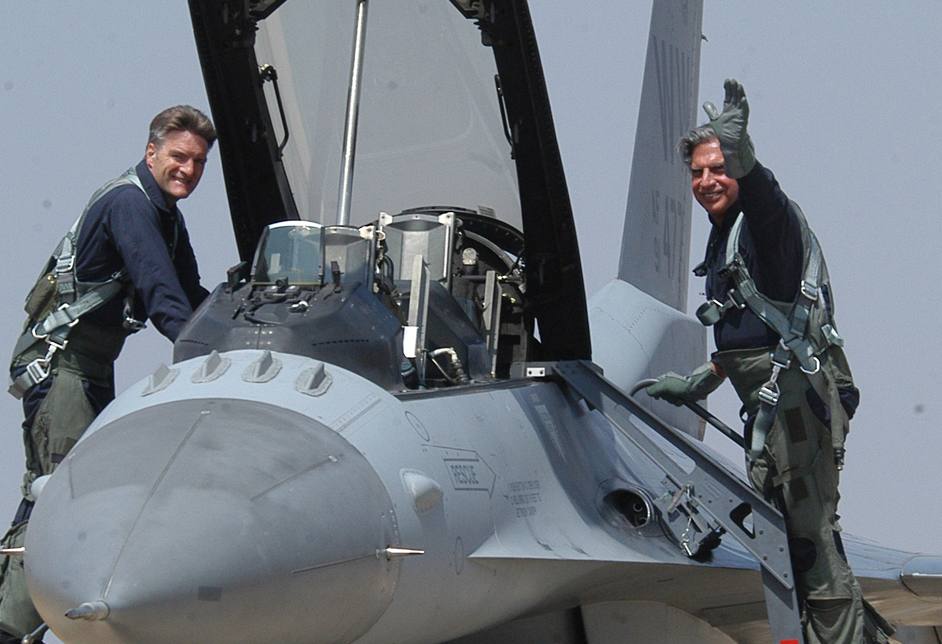






Ratan Tata was a firm believer in ethical leadership and corporate responsibility, prioritising strong ethical principles, integrity, and social well-being over short-term profits. His philosophy, which continues to guide the Tata Group today, emphasises the importance of businesses contributing to the betterment of society and the environment. Despite his immense wealth and stature, Ratan Tata remained remarkably humble, preferring to maintain a low profile and focusing on his work. Beyond his business endeavours, Ratan Tata was deeply committed to philanthropy, funding initiatives in education, healthcare, rural development, and other areas under his guidance.
Ratan Tata’s life and work have had a profound impact on the lives of millions of people in India and around the world. His visionary leadership, commitment to social responsibility, personal ethics, willingness to take risks, and embrace of failure are some of the lessons that can be learnt from his story.
Ratan Tata’s legacy will continue to inspire businesses and leaders for generations to come, with his passing on October 9th being a profound loss.
Ratan Tata passed away due to age-related ailments. He took his last breath at Mumbai’s Breach Candy Hospital.
Maharashtra’s chief minister announced a state funeral for Tata, and Mumbaikars turned out in throngs for his funeral. Tata’s legacy continues to inspire young people and shape the future of Tata Sons.
His story serves as a source of inspiration for aspiring entrepreneurs and business leaders, showing that with the right mindset, anything is possible.




